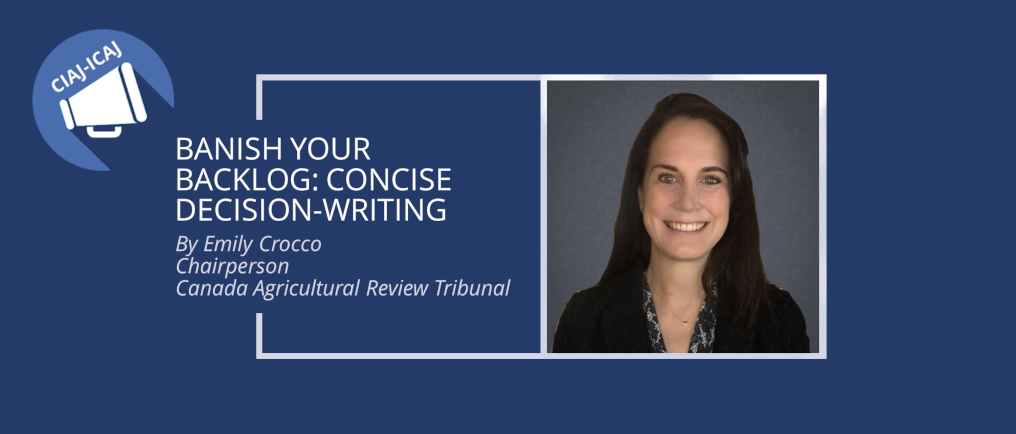Banish Your Backlog: Concise Decision-Writing as a Teachable Skill That Improves Timely Justice

“Administrative delay undermines a key purpose for which such decision-making authority was delegated — expeditious and efficient decision-making.” Rowe J (Supreme Court of Canada)
Many people know that tribunals, courts, and other government decision-makers have increasingly long backlogs. What fewer people may realize is that the length of decisions are also soaring, and that there is a strong negative correlation between decision length and how many decisions a court publishes.
Using original research, in this article I show that in the past decade, even though Canada’s Federal Court (FC) and Federal Court of Appeal (FCA) have more judges on their benches and annually received fewer new applications, the average number of decisions published by their judges decreased as the length of their decisions increased.
Given this data, I returned to the Supreme Court of Canada’s (SCC’s) decision in Canada (Minister of Citizenship and Immigration) v Vavilov. Many of us have rightly focused on what Vavilov tells us a reasonable decision must include. This time, I reviewed Vavilov for what the Court said we can exclude from reasonable decisions. In this paper, I summarize some of that guidance.
Next, I reviewed hundreds of recent FC and FCA decisions and identified language that some judges use to write more concisely. I share these phrases as tools decision-makers can use to write succinctly.
Finally, I suggest that given my research, the ability to write concisely should be a strong consideration when decision-makers and their support staff are hired and reinforced thereafter through training.
To learn more, read the full paper here: Banish Your Backlog by Emily Crocco

